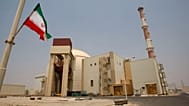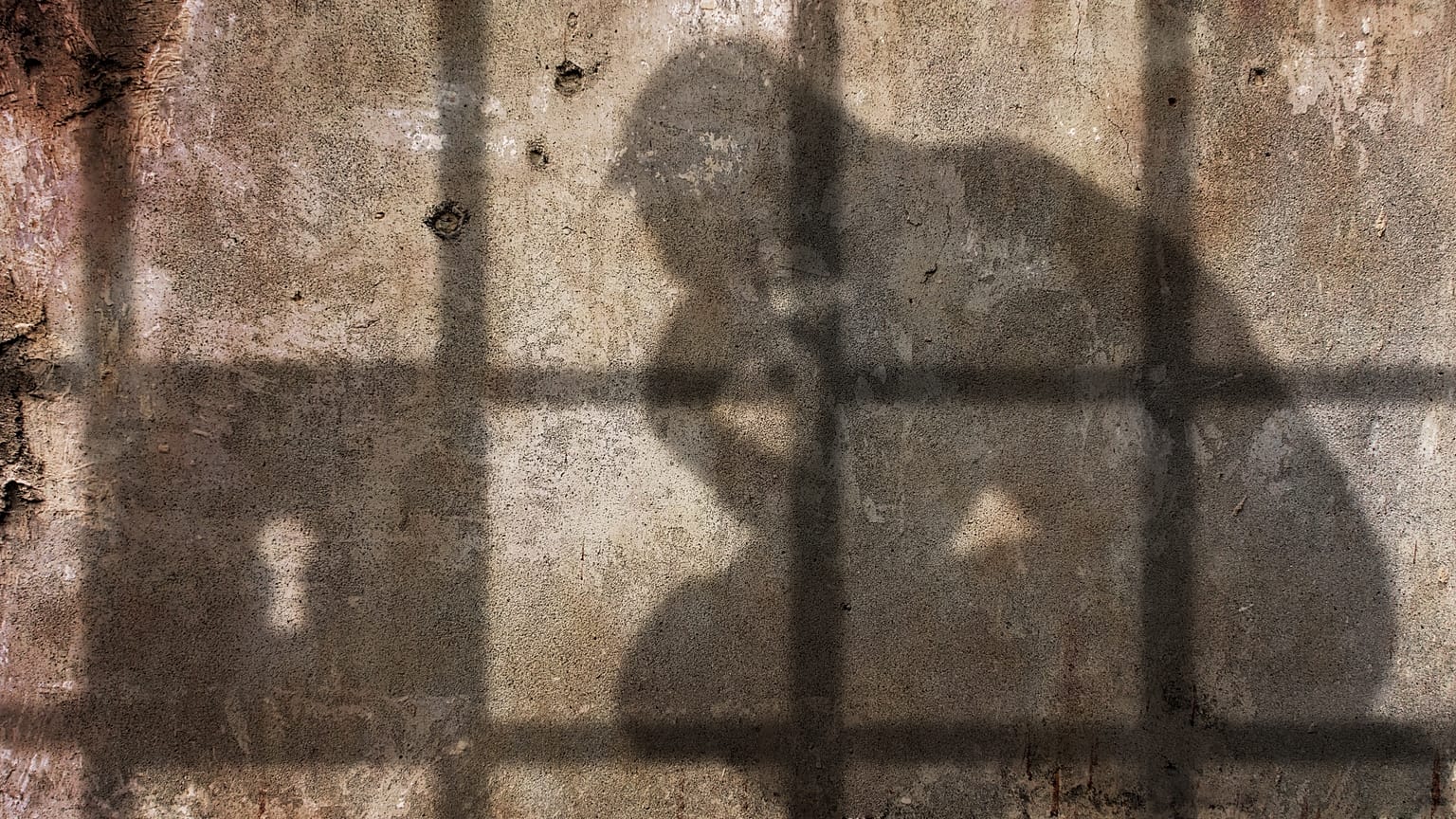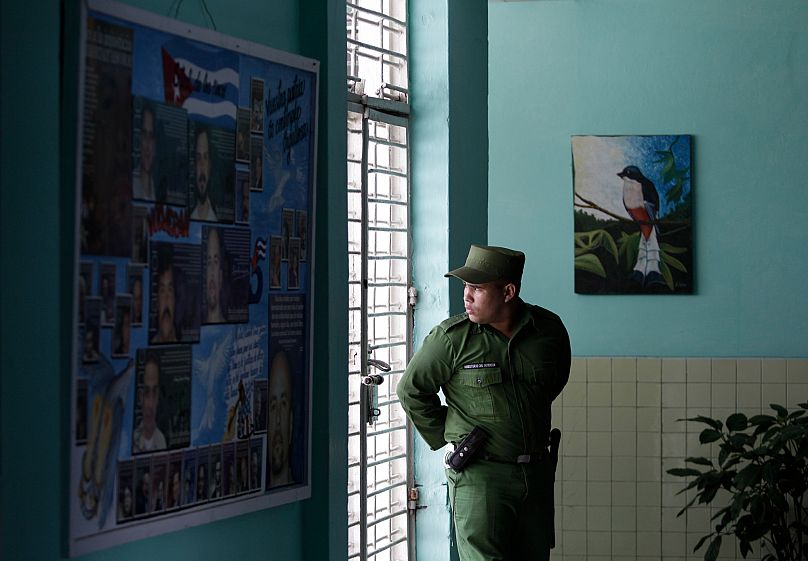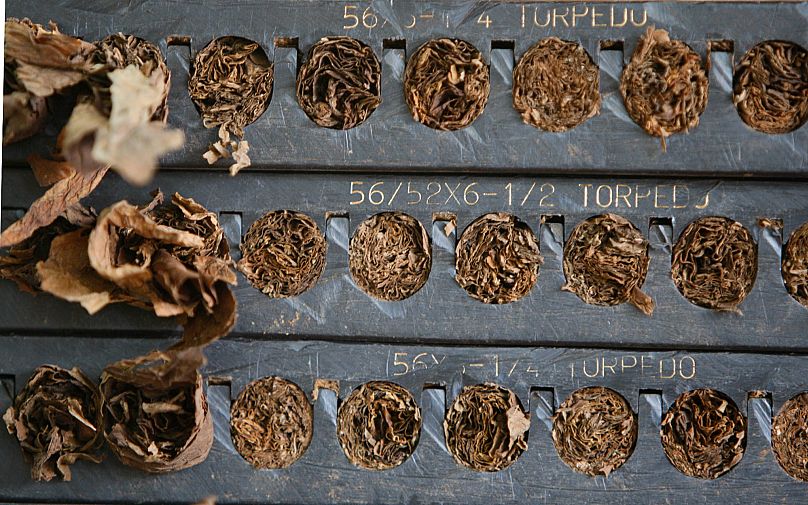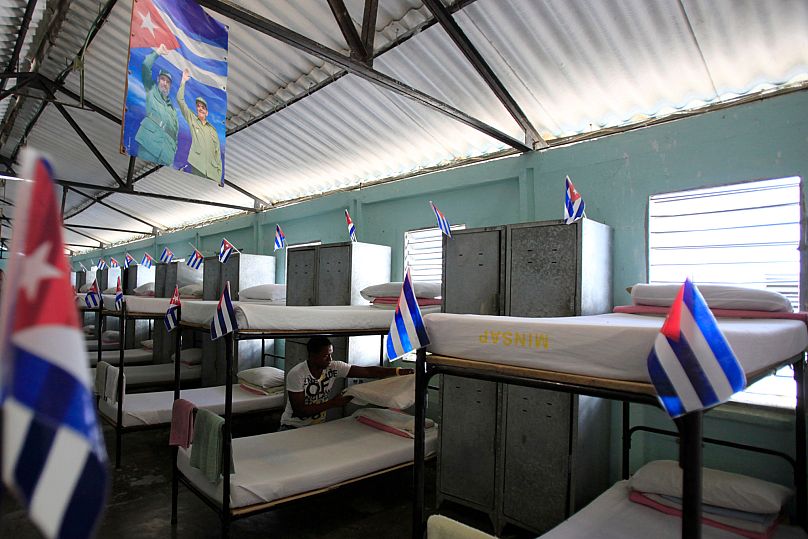Tens of thousands of prisoners are subjected to systemic forced labour, producing goods such as coal and cigars for export markets in conditions close to slavery, according to a new report published on Monday by the NGO Prisoners Defenders.
 ADVERTISEMENT
ADVERTISEMENT
In Cuban prisons, tens of thousands of inmates are reportedly subjected to forced labour to produce consumer goods intended not only for the national economy, but also for export, particularly to Europe.
The NGO Prisoners Defenders revealed its findings in a detailed report published Monday, based on official Cuban documents verified by the Institute for Crime and Justice Policy Research at Birkbeck University in London, field research and testimonies from former and current inmates.
Of the 90,000 inmates and 37,458 people serving open prison sentences identified on the island, the report estimates that 60,000 inmates — including political prisoners — are subjected to forced labour in Cuba, in conditions akin to slavery.
The report provides a detailed overview of a large-scale forced labour system organised within a network of 242 penal institutions, including traditional prisons, but also so-called "correctional centres," "camps" and "farms".
The tasks imposed on prisoners varied, ranging from agricultural, industrial, and construction work to rubbish collection and cleaning streets, hospitals and police stations.
The testimonies collected in the report describe harsh working conditions and a daily life filled with deprivation, harassment, and violence, all under close surveillance.
"They force us to work from morning to night, under the scorching sun, without sufficient food or water. If you refuse, the violence is immediate. Several of my colleagues collapsed from exhaustion, others were locked in solitary confinement for days, just for speaking out," recalled Jorge, a former political prisoner.
"Working barefoot in the sugarcane fields, in the rain and heat, is like being a slave," said Maria, a former prisoner of ordinary law. "No compensation, no respect. It's a life of suffering where you wonder every day if you'll make it."
In addition to the lack of adequate tools and minimal safety conditions, which lead to numerous injuries, a large majority of witnesses report serious deterioration in their health as a result of forced labour and the lack of medical care.
The production of sugarcane and especially charcoal from marabu wood, the main agricultural product produced by inmates, is among the most arduous activities imposed on prisoners, according to the report.
"To produce charcoal, we sleep in the fields, without a bed or a roof. We have to build makeshift huts and can only sleep on bales of straw ... We can only drink dirty water from a trough or from the cows on the neighboring farm," confided one inmate.
Coal and cigars, an opaque prison business
The research indicates that the production of these establishments is largely intended for export.
According to the Prisoners Defenders report, citing data from the Observatory of Economic Complexity (OCE) and the World Bank, in 2023, "charcoal produced by slave labour was Cuba's sixth most exported product," making it the ninth largest charcoal exporter in the world.
The main destinations are Spain, Portugal, Greece, Italy and Turkey, with Cuban charcoal produced in prisons being present in all European countries, according to the report's findings.
Another lucrative sector of the prison trade involves tobacco, and more specifically the production of the iconic Habanos cigars.
"Forced labour affects the Cuban tobacco and Havana cigar production sector, controlled by Tabacuba, in a mixed form of specialised civilians and prisoners subjected to forced labour," stated Prisoners Defenders, based on numerous testimonies and an audit of seven Cuban prisons.
The report cites the example of the cigar factory at the Quivican maximum-security prison, where 40 inmates work, supervised by two specialised civilians.
The prisoners work up to 15 hours a day, except Sunday afternoons, without breaks or snacks. They are paid just over €6 per month, compared to around €100 for civilians.
According to information gathered by the NGO, cigar factories located in many Cuban prisons account for a large portion of Cuban cigar production for foreign markets, whose margins on exports to Europe are nearly 100%, representing a very lucrative business for the government in Havana.
End the international silence
It is also a lucrative business for foreign distributors and importers, particularly European ones, who benefit directly or indirectly from the labour of Cuban prisoners.
The opaqueness of supply chains and distribution channels, which sometimes pass through local subsidiaries or commercial partners, hinders product traceability and, consequently, the accountability of foreign companies.
Prisoners Defenders has urged the international community to take action to end forced labour, which is prohibited by the United Nations Human Rights Council, the International Labour Organisation, and the European Convention on Human Rights.
Concrete measures recommended by the NGO include the imposition of a targeted embargo on products made with forced labour, particularly those exported to Europe, and the suspension of any trade or cooperation agreement with Cuba as long as forced labour persists.
In the absence of this, however, the lines have shifted within European institutions. Last November, the European Council adopted a regulation prohibiting the placing on the market, import, and export to the EU of products manufactured using forced labour, regardless of their country of origin.
This regulation, which will enter into force in December 2024, is far from being concretised. EU member states have until December 2027 to begin implementing it.




